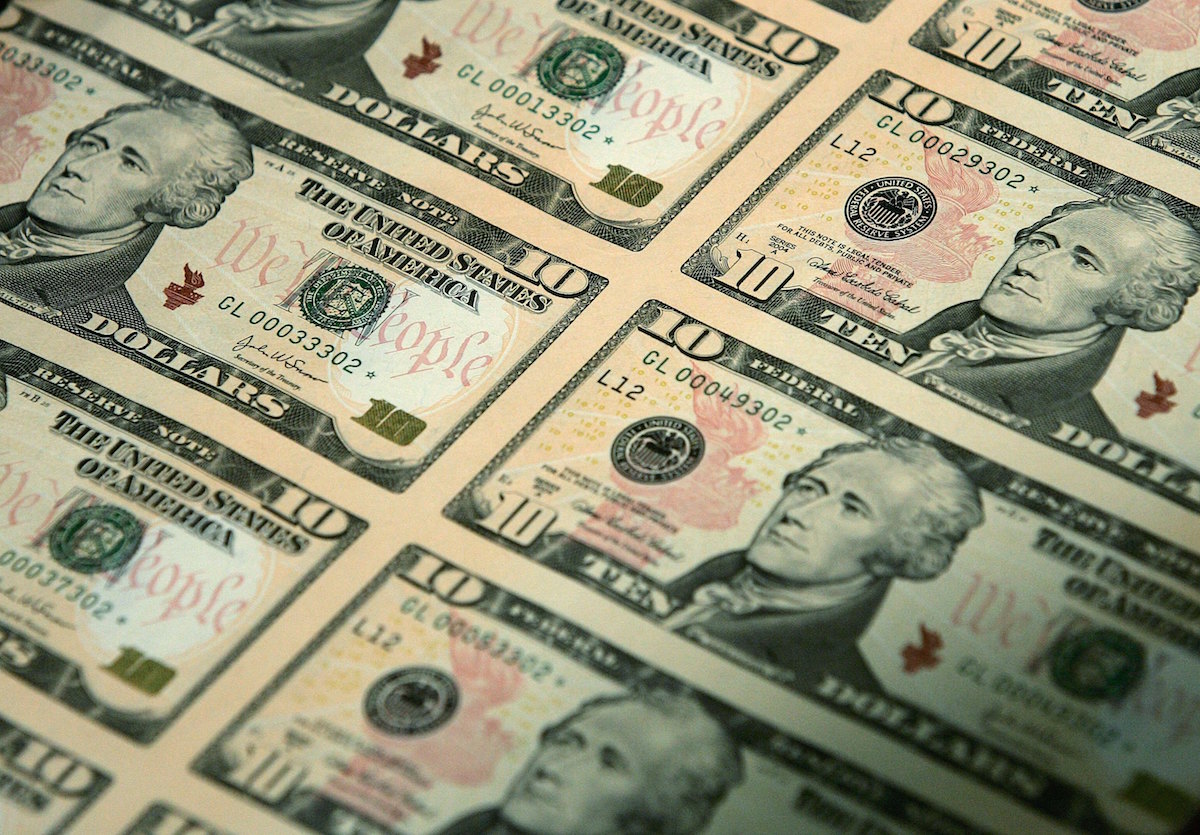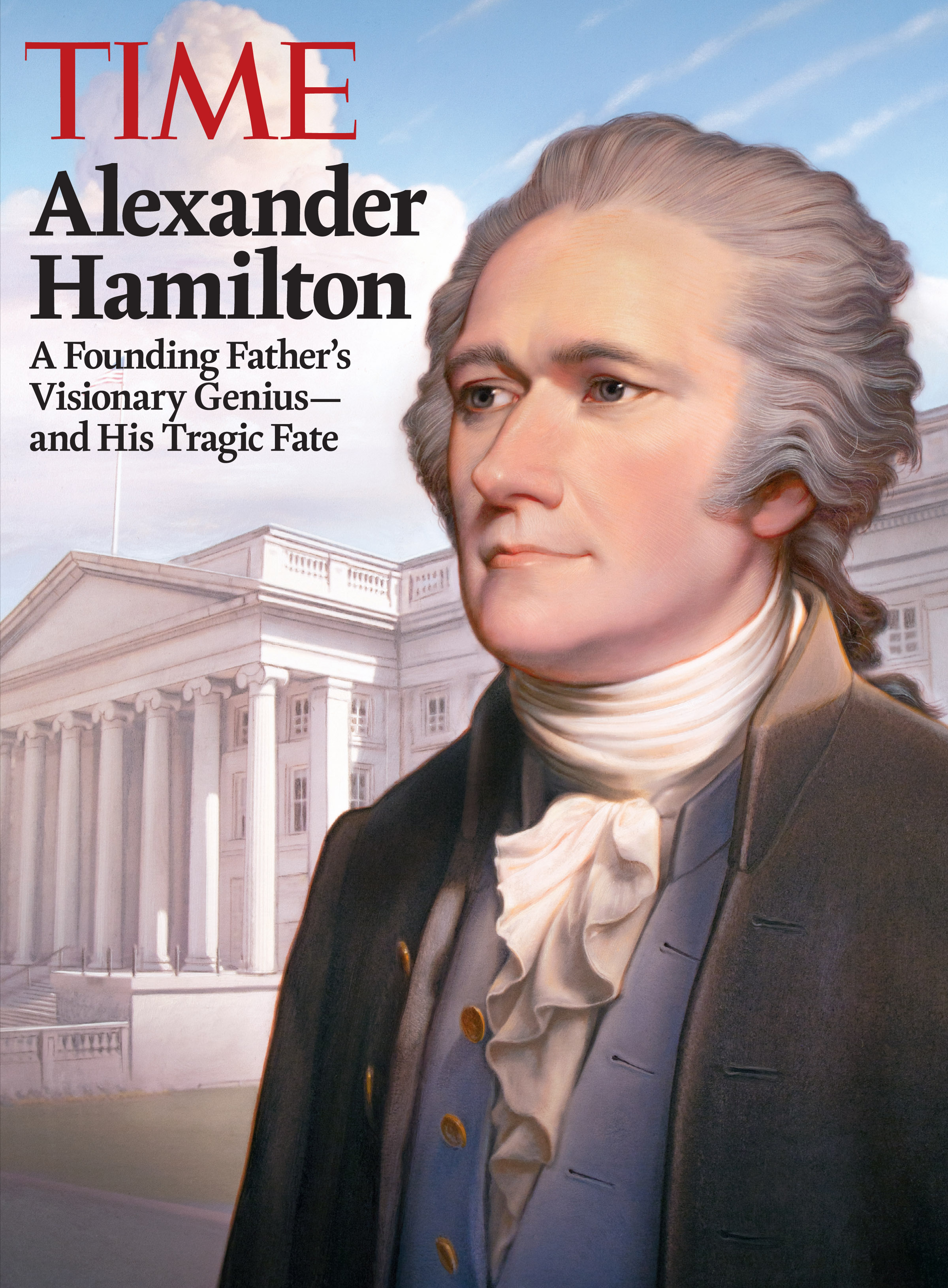
He Could Have Been President
Yes, he was born outside the United States. But Alexander Hamilton still could have been president. Though the U.S. Constitution states that only “a natural born Citizen” can serve as commander in chief, it does include an exemption for anyone who was a “Citizen of the United States, at the time of the Adoption of this Constitution.” In fact, in the late 18th and early 19th centuries, there were a slew of immigrants on such an elevated career trajectory. Besides Hamilton, there was Thomas Paine, the radical political journalist who gave hope to Gen. George Washington and his troops at Valley Forge with his The American Crisis pamphlet and its opening line, “These are the times that try men’s souls.” He hailed from Thetford, England. Albert Gallatin, the secretary of the Treasury who helped negotiate the end of the War of 1812 and co-founded New York University, was born in Geneva, Switzerland. Robert Morris, the banker known as the “financier of the American Revolution,” left Liverpool, England, in 1747. And let us not forget Declaration of Independence signer James Wilson (Carskerdo, Scotland), U.S. Constitution framer William Paterson (County Antrim, Ireland), South Carolina senator Pierce Butler (County Carlow, Ireland) and Secretary of War James McHenry (Ballymena, Ireland), for whom Fort McHenry was named.
He Was a Friend of the Jews
Johann Michael Lavien, the first husband of Hamilton’s mother Rachel, may have been Jewish (in fact, his last name is likely a variation of Levine). If he was, though, he kept it a well-guarded secret, probably because such a lineage could have branded him unmarryable material. Tellingly, his son, Peter, Hamilton’s half brother, was quietly baptized in his 20s, which suggests that he was trying to inoculate himself from his non-Christian ancestry. Still, Hamilton’s contact with the Jews on Nevis—the first of whom arrived in the 17th century after being expelled from Brazil by the Portuguese—endeared him to his neighbors. And after being taught by a Jewish tutor who included Hebrew among his lessons, he developed a lifelong respect for the Jews, defending them at every chance: “Why distrust the evidence of the Jews? Discredit them and you destroy the Christian religion.” The admiration was heartfelt. As he wrote, the “progress of the Jews . . . from their earliest history to the present time has been and is entirely out of the ordinary course of human affairs. Is it not then, a fair conclusion that the cause is also an extraordinary one . . . .”
He Was an Early Abolitionist
Growing up among sugar plantations, Hamilton saw firsthand the unfairness and brutality of slavery. In 1785 he, along with New York governor George Clinton, future Supreme Court chief justice John Jay and others, founded “The New-York Society for Promoting the Manumission of Slaves, and Protecting of Such of Them as have Been or May be Liberated.” The men hoped to “excite the indignation of every friend to humanity” and sought to ban slavery. While Hamilton could not even get the society’s members to agree to free their own slaves, the group worked hard for those with no rights. They published essays attacking the slave trade, kept a registry of blacks to protect them, and opened the African Free School, which offered an education to black children; before long, the institution was teaching hundreds. The society was among the anti-slavery organizations that petitioned Congress in 1791 to limit the trade in slaves, and though the effort failed, it paved the way for a 1799 law that was the first step toward the one eventually freeing all of New York’s slaves by 1827.
He Stumbled Upon a Traitor
In early fall 1780, Gen. George Washington and a group of aides that included Hamilton headed to West Point—the future military academy—to perform an inspection. They had no reason to suspect that Gen. Benedict Arnold, the new commander of the post, would be less than a gracious host. But the brash war hero—he helped take Fort Ticonderoga and led troops in the battles of Lake Champlain and Saratoga—resented recently being passed over for a promotion. Worse, his lavish lifestyle had left him desperately short of money. So Arnold had secretly sold his allegiance to the British; in return for £20,000 and a high-level army commission, he passed along information about troop movements and promised to turn over the fort. As Hamilton and James McHenry waited for Washington at Arnold’s headquarters a few miles from the fort, word came that Arnold’s co-conspirator, British major John André, had been captured and maps of West Point had been found in his boot. A flustered but still unimplicated Arnold ran upstairs to see his wife, Margaret “Peggy” Shippen, and when Washington showed up, he and the others were left to wonder where Arnold had gone. Eventually, Washington left to inspect the fort, while Hamilton stayed behind. As he sorted through some papers, he heard cries from upstairs. There, he found an unhinged Peggy, holding her baby and talking incoherently. It was a convincing charade meant to disguise her complicity in her husband’s crime. Meanwhile, Arnold had fled and was already on a British sloop-of-war appropriately christened Vulture. When Arnold’s betrayal was made clear, Washington said, “Whom can we trust now?” To Hamilton, Arnold’s actions were nothing less than “the blackest treason.”
He Turned Water into Wealth
Paterson, N.J., is home to the Great Falls, a 77-foot- high waterfall that is the second largest east of the Mississippi River. Hamilton, who once lived nearby in Elizabethtown, knew the spot at the bend of the Passaic River. During a break from the war to have a “modest repast” of tongue, cold ham and biscuits in July 1778, he showed it off to Washington, McHenry and the Marquis de Lafayette. He understood the power-generating potential of the 2 billion gallons that tumbled over the falls each day. In 1791 he chartered the Society for Establishing Useful Manufactures (SUM) with financier William Duer and others. In its prospectus, the society noted that America could not “possess much active wealth but as the result of extensive manufactures.” The organizers capitalized SUM at the exorbitant amount of $500,000 and named the nation’s first planned industrial city in honor of New Jersey governor William Paterson. Pierre Charles L’Enfant, the designer of Washing- ton, D.C., was tapped to figure out how to divert water from the falls, but his too-grand scheme was dismissed. His replacement, Peter Colt, dammed the ravine, formed a reservoir and created a path along which water could turn a mill. By 1794 the first cotton textile mill was up and running, and the city and nation were in business.
He Had Lots of Kids
Alexander and Elizabeth Schuyler Hamilton had eight children:
Philip The eldest Hamilton was named after his grandfather, Revolutionary general Philip Schuyler. In 1801 he got into an argument with George Eacker at the Park Theater and was fatally wounded in the subsequent duel—not far from the spot in New Jersey where his father would fall three years later.
Angelica Her brother’s death caused her to have a nervous breakdown, and though her father tried to perk her up with gifts of parakeets and watermelons, she never improved and was an invalid until her death at 72.
Alexander Born in May 1786, he graduated from Columbia College. He learned military tactics in the Duke of Wellington’s army in Portugal and served as a U.S. captain in the War of 1812. He became a U.S. district attorney in New York.
James Alexander He was a major in the War of 1812, was briefly acting secretary of state under President Andrew Jackson, and dealt in Manhattan real estate. As U.S. Attorney for the Southern District in New York, he was in the city when the Great Fire of 1835 hit, and he lit one of the fuses that blew up buildings to create a firebreak to help stop the blaze.
John Church He was an aide-de-camp to Gen. William Henry Harrison in the War of 1812 and edited his father’s writing.
William Stephen The son who looked the most like his father fought in the Black Hawk War and was a U.S. surveyor of public lands in Illinois before heading to California in the gold rush.
Eliza She married Sidney Holley, and after his death she lived with her mother and helped maintain her father’s papers.
Philip “Little Phil” was an assistant U.S. Attorney in New York and judge advocate of the U.S. Naval Retiring Board.

Read more about Alexander Hamilton in the TIME Special Edition Alexander Hamilton: A Founding Father’s Visionary Genius—and His Tragic Fate, available now. Pick up your copy in stores today.
More Must-Reads From TIME
- The 100 Most Influential People of 2024
- The Revolution of Yulia Navalnaya
- 6 Compliments That Land Every Time
- What's the Deal With the Bitcoin Halving?
- If You're Dating Right Now , You're Brave: Column
- The AI That Could Heal a Divided Internet
- Fallout Is a Brilliant Model for the Future of Video Game Adaptations
- Want Weekly Recs on What to Watch, Read, and More? Sign Up for Worth Your Time
Contact us at letters@time.com